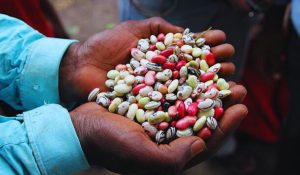
editorial
The Paris 2024 Olympics have left Nigeria grappling with a sobering reality: the so-called ‘Giant of Africa’ performed woefully across athletics, basketball, boxing, table tennis, wrestling, and football. This dismal outing is a stark reminder that rhetoric and scapegoating will not propel Nigerian sports to greatness. Instead, the Ministry of Sports must immediately begin preparations for the Los Angeles 2028 Games, laying the groundwork for a strategic rebirth of our sports sector.
The Paris debacle cannot be excused. Rightly, the Minister of Sports, John Enoh, described it as a disaster. Despite fleeting moments of triumph—D’Tigress becoming the first African team to reach the quarterfinals in women’s basketball and the men’s 4x400m relay team’s semifinal performance—Nigeria’s overall performance was underwhelming. The relay team’s disqualification for a lane violation only added salt to the wound.
A deeper issue underlies these failures: the chronic mismanagement and underfunding of sports federations in Nigeria. Politics often takes precedence over merit in appointments to federation boards, sidelining those with passion and expertise. National competitions, including the once-prestigious National Sports Festival, have been reduced to mere shadows of their past glory. At the heart of this problem is the consistent appointment of novices as sports ministers—a trend that has persisted since 1999, with sports used as a reward for political loyalty rather than a domain for capable administrators.
Yet, it is crucial to note that Nigerian athletes who competed under the flags of other nations performed admirably. These athletes of Nigerian descent—representing countries like Germany, Bahrain, the United States, France, Great Britain, and Spain—achieved significant success at the Paris Olympics. From winning gold in shot put to securing silver in the 400m and hammer throw, these athletes demonstrated exceptional skill and determination on the world stage. Their achievements underscore the vast potential within Nigeria, which, unfortunately, remains untapped and underutilized within the country’s borders.
This begs the question: if Nigerians can excel globally, why can’t they do so under their own flag? The answer lies in the systemic issues plaguing our sports infrastructure. To conquer the Olympics and reclaim our status as a sporting powerhouse, Nigeria must undertake a comprehensive overhaul of its sports sector. The following steps are imperative:
First, the government must prioritize the appointment of experienced and knowledgeable sports administrators. These individuals should have a proven track record in sports management and a deep understanding of the needs of athletes and federations. Political appointments should be abolished in favor of merit-based selections that prioritize the best interests of Nigerian sports.
Second, there must be a significant increase in funding for sports federations. This funding should not only cover the basics but should also be channeled into long-term athlete development programs, international exposure, and the revitalization of national competitions. The National Sports Festival, in particular, should be restored to its former glory as a breeding ground for future Olympic stars.
Third, Nigeria must invest in state-of-the-art sports facilities and training centers across the country. These facilities should be accessible to all athletes, regardless of their background, and should be equipped with modern amenities and coaching staff. This will ensure that Nigerian athletes have the same opportunities to train and compete as their counterparts in more developed nations.
Fourth, there should be a concerted effort to engage the Nigerian diaspora in sports development. The success of athletes of Nigerian descent representing other countries is a testament to the potential that exists outside our borders. By creating programs that encourage these athletes to contribute to Nigerian sports—whether through mentorship, training camps, or direct competition—we can harness their expertise and experience to benefit our own athletes.
Finally, there must be a shift in the national sports culture, with a focus on nurturing talent from the grassroots level. Schools, communities, and local sports clubs should be actively involved in identifying and developing young athletes. This requires collaboration between the Ministry of Sports, educational institutions, and private sector partners to create a sustainable pipeline of talent.
CSR REPORTERS notes, Nigeria’s poor performance at the Paris 2024 Olympics is a wake-up call. It is time for the nation to shed its reliance on empty rhetoric and instead focus on actionable, long-term strategies that will elevate Nigerian sports to global prominence. The talent is there; it simply needs to be harnessed and supported through the right policies, funding, and infrastructure.
By starting preparations for the Los Angeles 2028 Games now, Nigeria can ensure that the next time our athletes step onto the Olympic stage, they do so with the full support of a nation ready to conquer the world.








